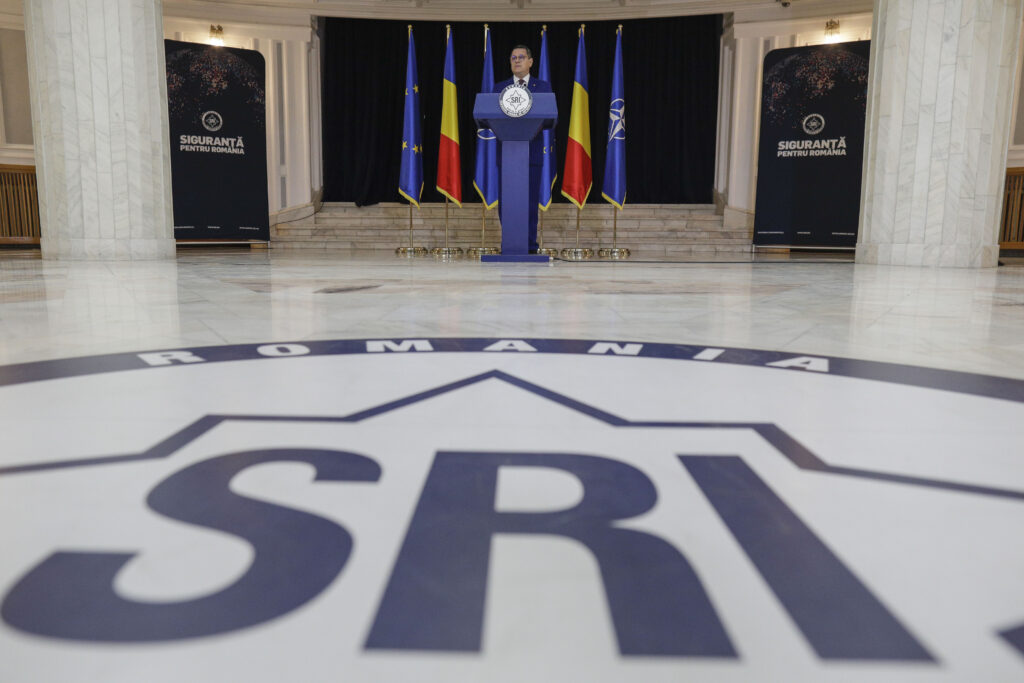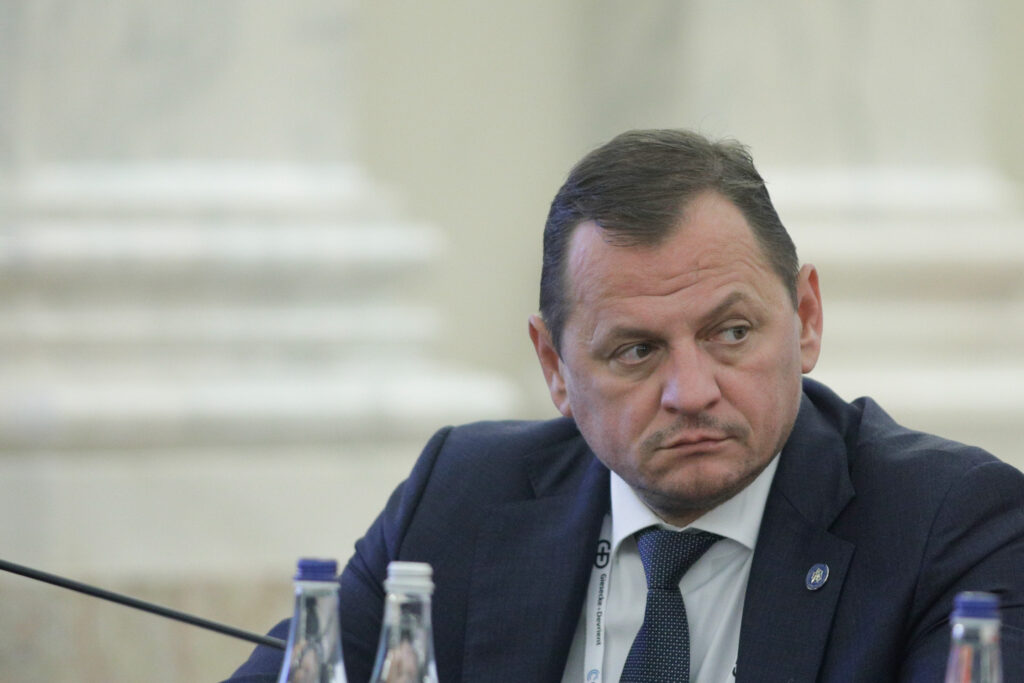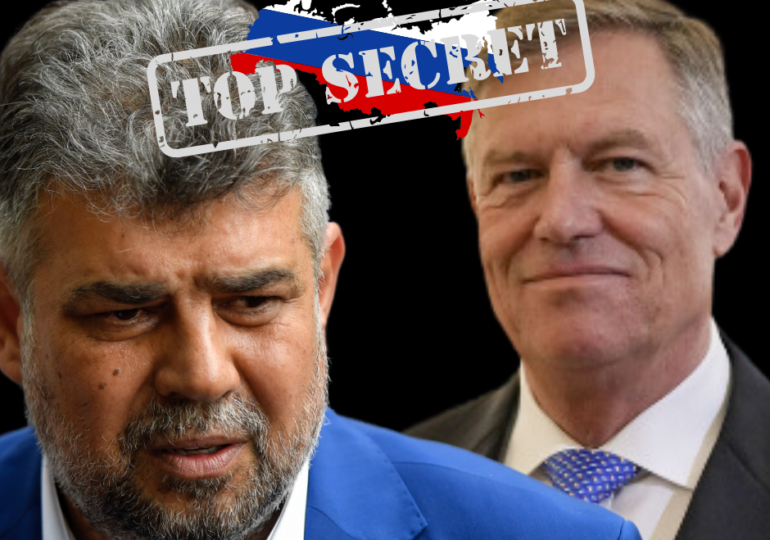On the afternoon of March 12, out of the blue, Klaus Iohannis comes to the podium of the Cotroceni Palace and announces that „I have decided to enter the competition for the position of NATO Secretary General”.
His statement caused shock, disbelief, and amazement, being perceived as bizarre, especially since Mark Rutte, then still the Prime Minister of the Netherlands, had received support for this position from France, Germany, the United Kingdom, and the USA.
„I assume this candidacy in the name of Romania with all responsibility, and this decision is based on Romania’s performance, the experience gained during the two presidential terms…, a deep understanding of the challenges facing NATO, Europe, and especially our region, and my firm commitment to the fundamental values and objectives of NATO,” Klaus Iohannis further stated.
In eight months, the president who declared that he deeply understands the challenges facing NATO failed to obtain any position in the Euro-Atlantic leadership structures, compromised the electoral process in Romania following a hybrid attack triggered by a foreign entity, and our country became a NATO vulnerability on the eastern flank of the alliance in the serious context of the war in Ukraine.
Romania is a stable, solid, and safe country! The European direction remains our only real path of development, and all democratic political forces have the obligation to work together to preserve this course unaltered.
Klaus Iohannis, December 12, 2024, four days after the Constitutional Court annulled the presidential elections due to foreign interference
The question that a large part of the public is asking is whether the state institutions knew about the hybrid attack, did everything humanly possible to stop it, but were defeated or taken by surprise.
After a series of interviews with politicians, security experts, and former intelligence service employees, we can say that we are in the second situation - political and national security institutions were taken by surprise by the hybrid attack and the rapid increase in support for candidate Călin Georgescu.
The interviewees did not want to reveal their identities due to the complicated situation, speaking under anonymity protection.
"Even today, we do not know in Romania what is the most serious threat to national security. For this reason, some things will always be approximate, and situations like these will happen," stated a person who closely understands the dynamics of relationships between the political environment and national security agencies, to Spotmedia.ro.
For example, Romania has a defense strategy, but it does not have an agenda. That is, after the strategy is established and published, each institution "takes it, puts it in a drawer, and continues to do the same thing as before."

This happens because there is no decision within the political system to prioritize the dangers to Romania based on applied analyses, but also to transmit such an agenda to the institutions to follow throughout the year to deter threats and protect the country.
The Dangers Are Known, But No Action Is Taken
For example, item 8 of the "National Defense Strategy" refers to possible changes regarding hybrid attacks: "Technological developments determine the diversification and increased complexity of security risks and threats, such as cyber attacks, activities specific to the information domain (hostile/influence actions carried out in the public space, disinformation, dissemination of false/fabricated news, etc.) and possible harmful and destabilizing effects of importing civil technologies within asymmetric and hybrid actions, generating new security challenges," as stated in the official document.
However, even though these risks have been identified, no measures have been taken to deter or remove them.
The defense strategy has been reduced to paperwork, and everyone continued to behave as if nothing had changed in the world, even though, for almost three years, a war has been taking place at the border.
"Prioritizing threats, in addition to communication between institutions, analysis, and studies, also requires funding," stated the specialized source consulted by Spotmedia.ro.
Often, budget constraints also discourage institutions from making changes in their actions, while the final decision lies with the political parties that form the parliamentary majority.
Serious Dysfunctions in the Government and Presidency
To illustratively present the lack of institutional responsibility regarding Romania's security, it should be noted that Prime Minister Marcel Ciolacu entered the electoral campaign for the parliamentary and presidential elections without a state counselor on "strategic affairs and foreign policy," while the Romanian Government is the guarantor of the fair conduct of the electoral process.
The unprecedented measure taken last week by the Constitutional Court of Romania to annul the results of the first round of the presidential elections, amid accusations of Russian interference, represents a milestone in the increasingly turbulent arena of East European politics.
The Guardian Editorial Board, British newspaper
Nicolae Comănescu, who held the position of state counselor on foreign policy and strategic affairs, was appointed as Romania's ambassador to the Netherlands on November 5.
On December 12, Nicolae Comănescu was still listed on the government's website as the prime minister's counselor, for a month, during the election campaign and elections, without another person being appointed.
But even if someone had been appointed, how could anyone act efficiently within a few days of taking up such an important position, to provide a correct perspective and the necessary reports to the prime minister to make decisions in such serious situations as the hybrid attacks against Romania?
In the described situation, there is also the superficial manifestation of the president who makes appointments without considering the consequences, in the midst of the election campaign.

The exposed case is just one concrete example of the dysfunctions in political institutions that favored the hijacking of the electoral process in Romania.
Additionally, there is the crisis in the Romanian Intelligence Service (SRI), an institution that has been operating without a civilian director for a year and a half, and in the Foreign Intelligence Service (SIE), where the service chief traveled, in the midst of a national security crisis, using a private plane, to at least one Formula 1 race.
Europe Is Alarmed by Romania's Vulnerability
"The Ministry of National Defense, because the legislation is old and poorly made, clings to the idea that it does not act because there is peace and not a military conflict. A whole series of things that it needs to do, it does not do for this reason. But the main premise of hybrid warfare is exactly that the distinction between peace and war disappears," stated a defense strategy expert, under condition of anonymity, to Spotmedia.ro.
It has been noted that the Ministry of National Defense was able to act when the situation became extremely serious, and on TikTok, an intense spread of false information occurred on December 8 and 9, claiming that Romanian military forces were preparing for war.
The hybrid attack in Romania has caused immense concern at the European and NATO levels.
For the first time, a major disruption of a democratic electoral process was observed through the rapid promotion of an unknown candidate on social networks and the transformation of a hostile campaign into votes.
Călin Georgescu, two weeks before the first round of the presidential elections, was an unknown figure in Romanian politics.
Then, with tens of millions of euros and the use of influencer networks and communication established beforehand, he obtained 22% of the votes cast, finishing first.
Without a profound crisis at the government, political parties, president, and intelligence services, such an operation would not have been possible.
"Romania's experience should serve as a wake-up call in other parts of Europe. Radical parties are already experts in fueling voter dissatisfaction with traditional centrist groups on issues such as immigration or the cost of living," stated an article by the Editorial Board of the British newspaper "Financial Times".
"But Romania and Moldova are just the latest countries where social networks have been exploited by external actors who want to tilt the balance in favor of preferred candidates," the editors of the important newspaper further emphasize.
"Platforms must tighten political content moderation, as required by European Union legislation. Old rules on party financing and advertising need to be urgently updated to cope with the new realities - otherwise, courts elsewhere could soon face dilemmas similar to those in Romania," reports the Financial Times.

